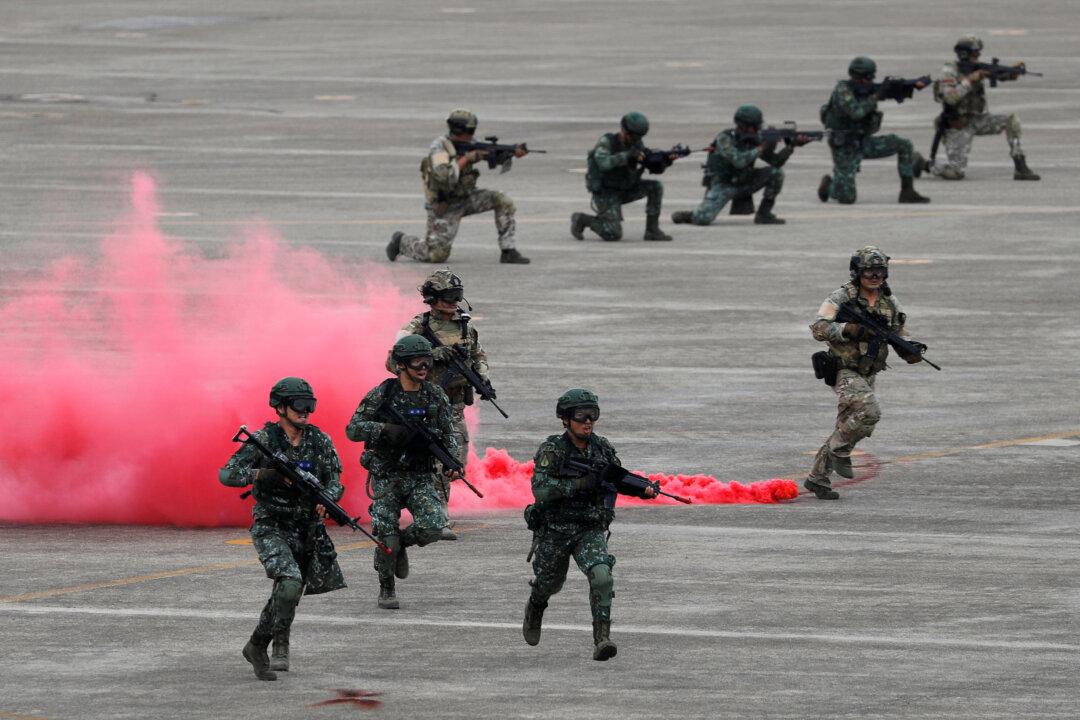TAICHUNG—Taiwan simulated repelling an invading force on June 7 and used civilian-operated drones for the first time as part of annual military drills on the self-ruled island, amid escalating tensions with the Chinese regime.
The drills were presided over by Taiwan President Tsai Ing-wen and watched by the visiting king of eSwatini, the African kingdom formerly known as Swaziland at the center of a diplomatic tug-of-war between Taiwan and China.





